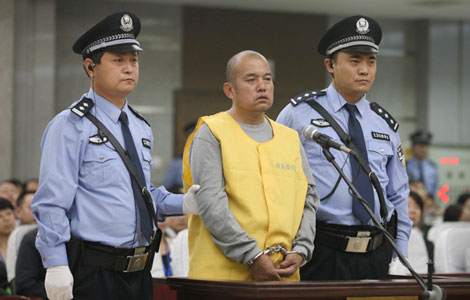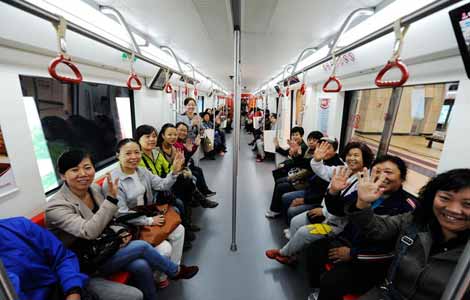

SHIJIAZHUANG - When eating and sleeping in grassroots household, Zhou Benshun and his colleagues were reminded of the days when they walked or rode a bicycle to inspect villages and sat together with locals in a long wooden chair to chat.
In an effort to listen to people's voices and find their own shortcomings, Zhou, secretary of the Communist Party of China (CPC) Hebei Provincial Committee and other local officials, each stayed with locals for over three days - before CPC leader Xi Jinping came to listen to them relay criticisms and self-criticisms in life and work style.
Xi, general secretary of the CPC Central Committee, participated in special sessions held in North China's Hebei Province between Sept 23-25 for local officials to discuss their own problems as part of the ongoing "mass line" campaign.
The one-year educational campaign was launched in June by China's leaders to boost ties between CPC officials, members and the broad masses while cleaning up undesirable work styles such as formalism, bureaucracy, hedonism and extravagance.
During the sessions, standing committee members of the Party Committee of north China's Hebei province examined their own conduct, laid out major problems, analyzed the causes and set down plans for rectification.
Ahead of the sessions, Xi raised his own requirements to the standing committee members: "I don't want to hear fancy words from you when I take part in your sessions. I want real criticisms and self-criticisms."
Addressing some Party officials' concerns, Xi said the sessions were held with the purpose to uncover and rectify problems and expressed his hope that participants could brush aside worries.
In his July trip to Hebei, Xi visited local villages, communities, enterprises and government departments, calling on local officials to humbly listen to people's opinions and accept their supervision.
"Criticisms and self-criticisms should be put in a significant position. Party members and officials should be taught to look in the mirror, straighten their attire, take a bath and seek remedies," Xi said during the trip.
Under these guidelines, local Party committee officials organized grassroots meetings, set up special email address, hotlines and microblog accounts to collect more than 170,000 pieces of opinions, among which some 30,000 addressed problems.
Meanwhile, the campaign urged the officials' self-criticisms to be deep and to the point.
Shortcomings revealed by officials during the sessions included obsession with performances on the surface, slack work style, and indulgence in privilege status.
"When I came to Hebei, I was keen on making changes, and I was afraid of falling behind and losing my faces. So I cared very much about development speed and economic volumes but not as much about people's own interests," Zhou said.
Despite his life in the rural area as a young boy, Zhou admitted that being an official for a long time tended to alienate him further from the people.
Zhou received suggestions by other Party committee officials such as paying more attention to poverty relief and familiarizing himself with other officials.
Following the sessions, the standing committee of the provincial Party committee drafted 25 rectification measures, focusing on scientific and democratic decision-making and sticking to a cleanhanded and people-oriented work style.
Living with grassroots people for at least three days was among the requirements these officials raised for themselves.
All through the sessions, Xi listened, made notes and occasionally expressed his own thoughts.
"This time's sessions are a good start, but officials should not have the wrong idea that they have passed the test just because the sessions are over," Xi said, calling for the campaign to stick to a high standard as it goes on.







